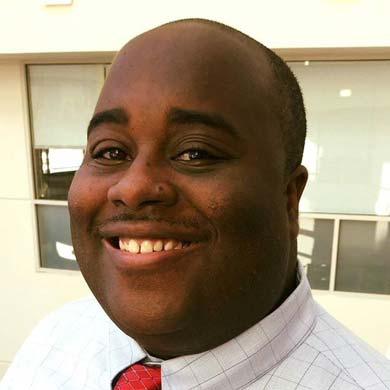As a kid I loved Superman. The undisputed good guy, he saved the world. Superhero and comic book movies often showcase easy-to-understand stakes, protagonists, and antagonists, making villains and heroes obvious.
Depending on how you view the world, for many people, either the superhero or the villain won the presidential election. Everyone’s villain is the superhero in somebody’s narrative.
Life is often more complex, but during the course of my 14 years as a reporter, I have found that we the people try to simplify the narrative when we talk about issues affecting our national political discourse, even at the local level. The late House Speaker Tip O’Neill once said “all politics is local.” But the 2020 corollary might find that local politics and issues are becoming nationally politicized.
For years, a casual scroll of user-generated comments on the social media platforms of most news outlets has shown people very angry on a whole range of issues, many of which don’t have a direct impact on their local area.
When I worked as a reporter at the Williamsburg-based Virginia Gazette, my hometown paper, there was a small contingent of conservative activists who would get up to speak at local public meetings about national politics, sometimes going on at length about different right-wing conspiracy theories of the time. There was talk about Human Agenda 21, a convoluted supposed U.N. plot to implement socialist policies in the United States. Others ranted about Common Core and national education plans.
Later when I covered Asbury Park, a storied New Jersey city sung about in Bruce Springsteen songs, the political environment couldn’t have been more different. Filled with progressive activists, the local meetings at times sounded like a social justice alphabet soup. Once, a well-meaning white progressive activist was explaining to me, a Black man from the South, the history of racial oppression against Black people in the United States and he kept looking at me hard as if I didn’t understand the totality of the problem.
But for all the difference between the right-wing activists in James City County, Virginia, and the progressive ones in Asbury Park, New Jersey, I couldn’t help but notice they had something in common: An aggressive belief that not only were their viewpoints the only right ones, but the “other side” was ultimately leading to the destruction of the country they held dear. The message and politics might have been different, but the rhetoric, distrust, and vilification was the same. It would seem like you were tuning into a mini version of MSNBC or Fox News.
A recent study showed that when local news outlets scale back, creating news deserts, it leads to increased polarization in the communities. In conversations I’ve had with a range of political scientists, commentators, and pundits across the political spectrum during my time as a Nieman Fellow, nearly all have pointed out that American society is retreating into spaces that reinforce whatever narrative we prefer.
David French, a conservative writer who is a senior editor of The Dispatch, said American communities are increasingly separated by politics. “We’re clustering geographically by politics,” said French, who recently authored the book “Divided We Fall” which examines polarization and divisions in American society. “So we are decreasingly likely to live around people who have a different point of view from us.”
Furthering the divide is today’s à la carte news consumer environment in which we get a range of options for news analysis and infotainment services that cater to our personal beliefs. With that and the ever increasing competition for eyeballs and time, it’s hard to break through and have a tough conversation about what life might be like for people outside of our own echo chambers.
This is one of the key avenues where I believe journalists can play a part in bridging the divides in our discourse. We can be the voices of disparate communities, we can get to know people who at a glance may have nothing in common with each other, but we can find the bonds that unite. It’s a chance to paint a portrait that’s more in-depth than the caricatures and conventional narratives that you might see in a superhero story. Capturing people, policy issues, and political figures in all their nuance, complexity, flaws, and strengths will lead to a better conversation at the national and local levels.



